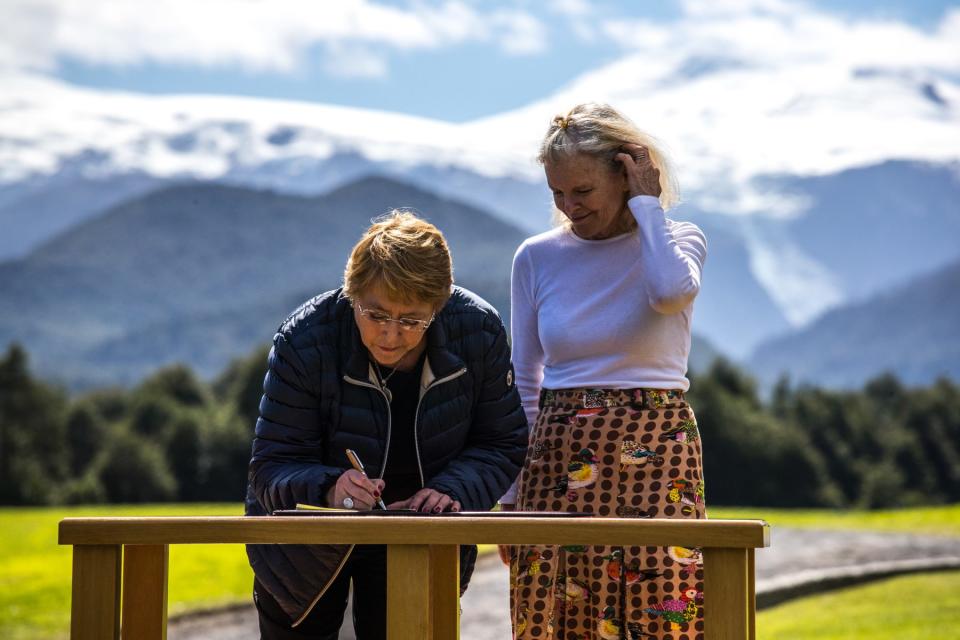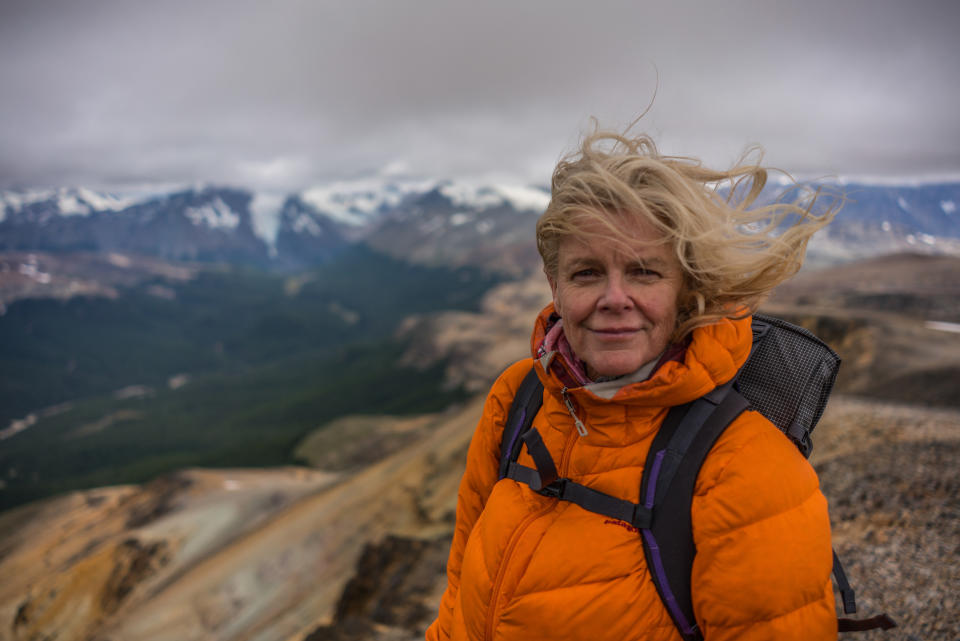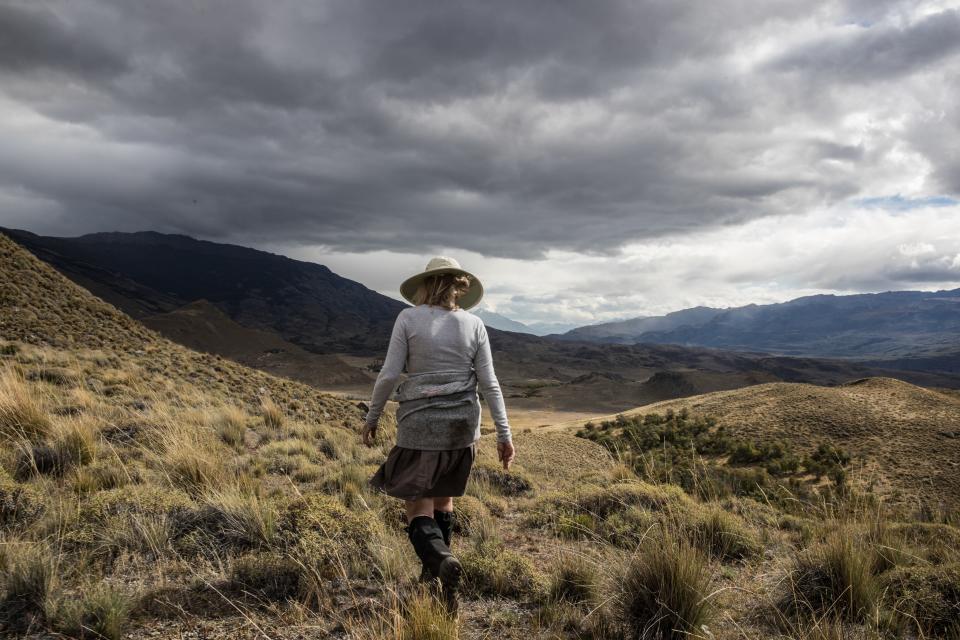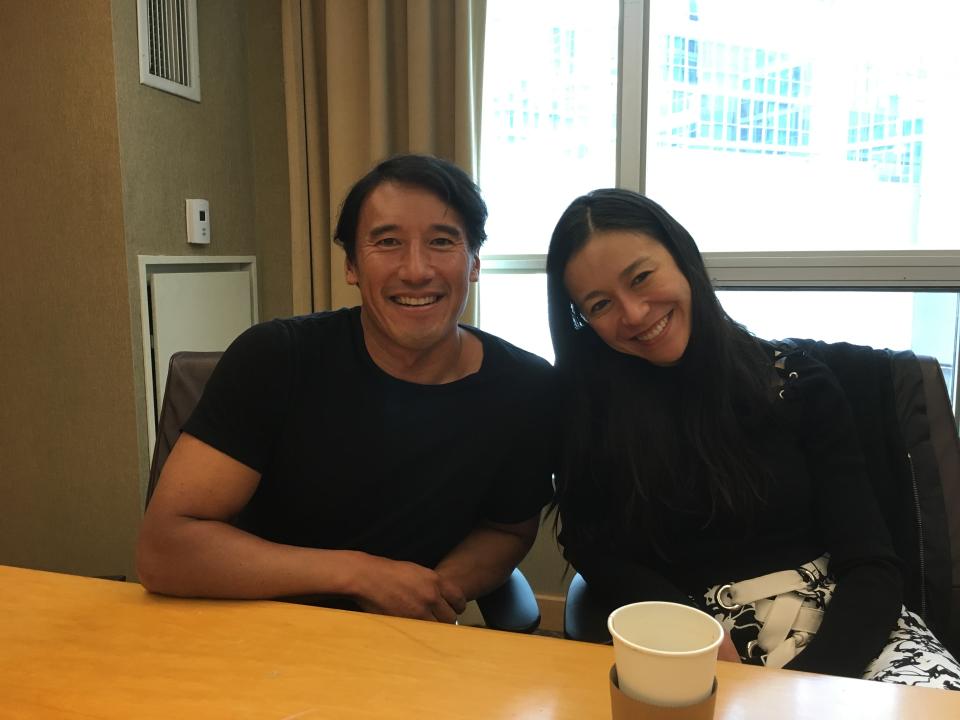‘Wild Life’ Continues Filmmaking Duo’s Non-Fiction Winning Streak

With “Wild Life,” the filmmaking team of Jimmy Chin and Chai Vasarhelyi prove yet again — after “Meru,” Oscar-winning “Free Solo,” and “The Rescue” — that they are nonpareils at delivering consistently stunning visuals and provocative non-fiction content. Unlike most documentary filmmakers these days, they had a juicy NatGeo budget to film in the wildest areas of Chile and Argentina and the opportunity to screen their movie theatrically via Picturehouse before winding up on Disney+ May 26.
The directing duo choose their subjects carefully. In this case, at the center of this dramatic decades-spanning story is Kristine McDivitt Tompkins who, having risen to CEO of Patagonia after 23 years at the company, abruptly left to marry billionaire eco-philanthropist Doug Tompkins and join his mission to save millions of acres of wildlands in Chile and Argentina. In 2015, after he died in a kayak accident, she took on his mission and in 2018 donated 10 million acres as national parkland.
More from IndieWire
Chin had climbed with Doug Tompkins, who founded North Face and Esprit, and Patagonia founder Yvon Chouinard and his VP Rick Ridgeway, and considered them close friends. On a 2002 Tibetan plateau trek, Ridgeway first taught Chin how to film his climbs and introduced him to Chouinard and then the Tompkins a few years later. For years, Vasarhelyi was wary of jumping into a documentary about Chin and his powerful friends — who were accustomed to controlling their world. But their story was too strong to ignore.
“You’re damned if you do, damned if you don’t, if you try making a movie about your husband and life partner and filmmaking partner’s mentors,” Vasarhelyi told me at an Academy Q & A. “I only seem to lose. Either he’s gonna be mad or everyone’s going to be mad. But there was something about the story, we were flirting with it for quite a long time. Jimmy was compelled because these are the people who mean the most to him in the world. And when I understood this idea of second chances and regeneration, this idea that Doug Tompkins at the height of his Esprit days had decided there was more he could do for the world; he was willing to walk away from family, from wife, from a company, to try to do more and move to Patagonia, and Kris Tompkins, this was her family she was leaving, but she felt like she could do more. And then the worst thing that will happen, the love of your life who you found later in life, dies. And you have this audacious dream, of trying to create the largest private land donation in history and take on incredibly conservative governments, doing all the sweat work of converting their communities. I was inspired by this idea of a woman using her voice.”

There were parallels that couldn’t be denied between two couples who are not just married but incredibly intensely involved in their work. “It’s the fighting like cats in a bag club,” said Tompkins at the Q & A. “However, at night, every night, you have to turn to one another and say, ‘I love and adore you.’ I see that in these guys. Yvon always said that Japanese swords are made of this incredible steel that they work over and over and over again. That is the nature of marriage to me and living these extreme lives. And that’s what we wanted. And that’s what we got.”
Of course Chin started off eight years ago by filming his friends on a vertiginous mountainside. “That was part of the impetus of the film, that Kris had invited myself and Rick Ridgeway to come down and climb Cerro Torre there. And so we had set that time to do that. Right when we’re about to come down to do the climb, [Chilean] President Bachelet was coming to meet with Kris for the first time, and talk seriously about the parks. And I asked Kris if anybody was filming it. And she said, ‘no,’ because she wasn’t thinking so much about films or making a big deal out of it. So we came down and filmed on that trip.”
Kris Tompkins wasn’t sure she wanted to participate in the movie until “Free Solo” star Alex Honnold gave her a push. “Look, I understand that Jimmy and Chai want to do this film about you guys,” he said.

“I’m jumping foot to foot,” she said. “I’m not sure.”
“Do what I did: sign the contract, and then forget about it.”
And that’s what she did. When she saw the film sitting with the audience at the 2023 SXSW premiere, she was happy. “I love the story,” she said, “and these two have allowed me to fall in love with this story in a way that I can sit back and just be grateful that ‘God,’ as I say at the end of the film, ‘what a life!'” And if Doug were here, he would agree with me that the last 30 years, we’re very proud of it. But a legacy for us would be what’s happening from today forward. We have the second generation of Tompkins Conservation, and some of the third generation out here. And I hope our legacy is something you see 50 to 100 years out there. The back. That’s done.”
Up next: Chin and Vasarhelyi are finishing up their first fiction film, “Nyad” (fall, Netflix) based on the true story of swimmer Diana Nyad, who tried to swim from Cuba to Florida four times, starting when she was 28. “It’s very true to brand, about someone who can’t give up ever,” said Vasarhelyi. “Finally she did it on the fifth try when she was 64.”
“She had a 30-year, incredibly, retirement from swimming,” said Chin.

“But she had a vibrant broadcasting career,” said Vasarhelyi. “Annette Bening was 64 when she played the part and she trained for a year. And then Jodie Foster was 60. And it’s Jodie’s first role as an openly gay woman.”
The transition from documentary filmmaking, where you’re looking at what’s in front of you, to fiction, where you’re creating what’s in front of you, wasn’t as tough as they expected. Working with the actors was easier, Chin said, than “trying to get Alex [Honnold] to do things he didn’t want to do. Those instincts of filmmaking and story and emotion and the subtext of what each scene is about? Those were all instincts that were pretty well honed. But the challenge was the number of questions you have to answer in a given day.”
They’re not giving up on documentaries just yet.
Best of IndieWire
Where to Watch This Week's New Movies, from 'Asteroid City' to 'The Flash'
Wes Anderson Movies, Ranked: 'Bottle Rocket' to 'Asteroid City'
Sign up for Indiewire's Newsletter. For the latest news, follow us on Facebook, Twitter, and Instagram.

 Yahoo Sports
Yahoo Sports 